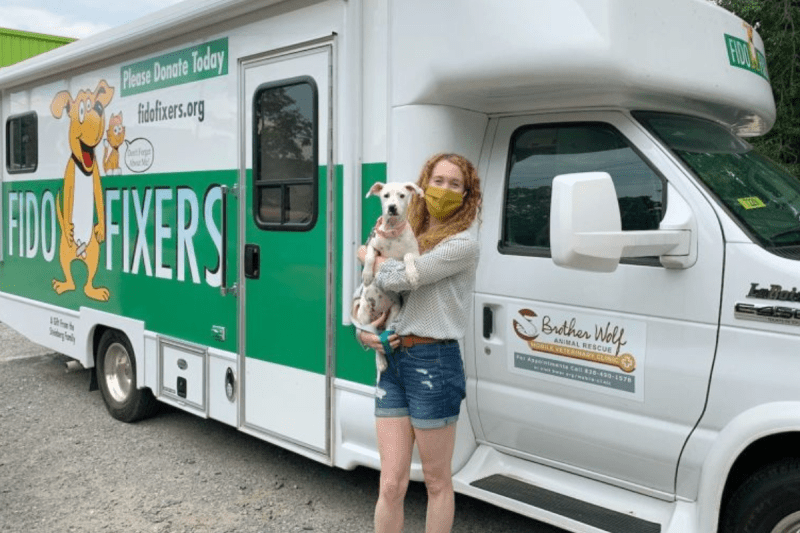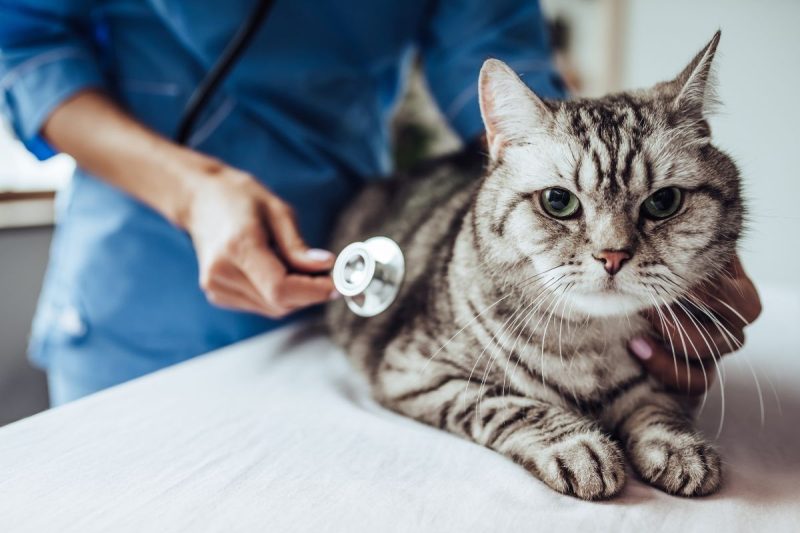This landing page serves as a hub for research and information about the veterinary shortage as the crisis evolves.
Vet Shortage Task Force
United Spay Alliance convened the Veterinary Shortage Task Force to better understand the ongoing challenges faced by the veterinary community, and what animal shelters and rescues may do to support veterinary partners, and continue to serve animals.
There’s no doubt about it – veterinary professionals play the key role in spay/neuter! For low-cost spay/neuter to exist, there must be a supply of well-trained veterinarians and veterinary technicians ready to support their local organizations and communities.
Unfortunately, across the country there is an ongoing shortage of such veterinary professionals available. This has led some clinics and practices to cut back on their hours, reduce appointments, and cancel spay/neuter events. Regretfully, the veterinary shortage has even led clinics to shutter their doors forever.
This crisis comes at a pivotal point in our movement. While the pandemic and subsequent lockdowns halted surgeries and closed clinics, too many families were struggling to make ends meet. As the dire need for affordable spay/neuter services rose, the availability of such services began to decline. That trend continues today.
United Spay Alliance and the Veterinary Shortage Task Force are working to expand access to spay/neuter services, and support the veterinary community, animal shelters and rescues alike as we come together to stem the tide once again and save animal lives.
What we’re doing:
- Building an understanding on the veterinary community and the complexities of the various organizations which play a key role in shaping the profession. Download our Fact Sheet on the Role of Key Influential Veterinary Medical Entities here.
- Tracking legislation that would make it easier for licensed veterinarians to travel across state borders to practice medicine, especially to perform spay/neuter surgeries.
- Researching and publicizing models for veterinarians and clinics to implement to increase spay/neuter capacity for their communities.
The Veterinary Shortage Task Force is Chaired by Cheri Storms, United Spay Alliance Board Member, and Executive Director, Pet Friendly Services of Indiana
Other Members & Contributors:
- Loren Breen, Policy & Research Director, Animal Policy Group
- Dr. Amy Fischer Brown, Teaching Associate Professor, Extension Faculty Specialist, University of Illinois Urbana-Champaign College of Agricultural, Consumer and Environmental Sciences
- Dr. Phil Bushby, Professor and Marcia Lane Endowed Chair of Humane Ethics and Animal Welfare, Mississippi State University College of Veterinary Medicine
- Daniel Ettinger, Supervising Animal Control Officer, and Adjunct Instructor, University of Missouri-Columbia Law Enforcement Training Institute
- Jamie Falzone, Executive Director, Massachusetts Veterinary Medical Association (MVMA)
- Dr. Laura Frazier, Leader of the Spay-Neuter, Community Outreach and Shelter Medicine service at the Veterinary Teaching Hospital, University of Illinois Urbana-Champaign College of Veterinary Medicine
- Dr. A. Michelle Gonzalez. Veterinarian and Owner, The Rascal Unit
- Jennifer Hobgood, Senior Director, Legislation, Southern Division, ASPCA Government Relations
- Dr. Cynthia Kathir, Veterinarian, ASPCA Spay/Neuter Alliance
- Karen Kraus, Executive Director, Feral Cat Coalition of Oregon
- Stacy LeBaron, United Spay Alliance Board Member, and Head Cat, Community Cat Podcast
- Dr. Julie Levy, Fran Marino Endowed Distinguished Professor of Shelter Medicine Education, University of Florida Shelter Medicine Program
- Esther Mechler, Founder, United Spay Alliance
- Brianna Lovell Myers, Administrative Director, United Spay Alliance
- Dr. G. Robert Weedon, HQHVSN Surgeon, Humane Society of Polk County, and retired Clinical Assistant Professor and Service Head of Shelter Medicine, University of Illinois College of Veterinary Medicine










